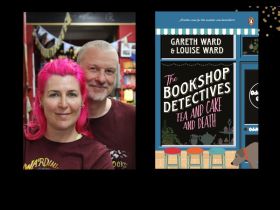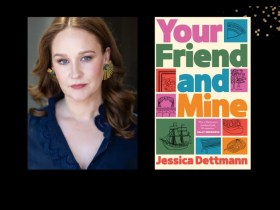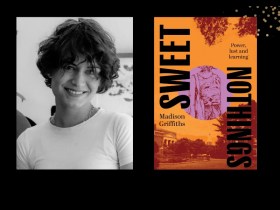Short videos about reading, recommending and reviewing books are growing traction in Australia, a much needed restorative correction to fill the void as mainstream publications continue to downsize their literary pages and reserve valuable space mostly for well-known high brow authors at the expense of genre writing like YA fiction, fantasy, sci-fi or romance.
Booktube and Booktok provide a chance for readers to connect and form a hive of like-minded readers and offer a new generation a voice with which to profess their interest for and champion particular books or genres online. Users often adopt a casual conversational tone, with sincerity and passion the bedrock of their delivery rather than any stringent critical emphasis.
Booktube is essentially an offshoot of YouTube where channels of videos display all things bookish. Newer on the scene is Booktok, a niche of the social media platform TikTok, where bibliophiles also gather. Like TikTok, Booktok appeals to a younger (under 30) market. Being digital natives, they are more likely to engage with video messaging than print media.
ArtsHub reached out to a couple of Booktube and Booktok practitioners to survey the terrain.
Booktube ideal platform to promote Australian content
Jaclyn Masters started her Booktube in 2018 while she was in Texas ‘as a way to find other readers who read Australian literature as there was no one I knew there who did. I used it more as a conversation starter. Perhaps it’s helpful to publishers as a marketing tool, which might be a different angle to those creating content’ she said.
Masters began with tags and collaborations in her earlier days of booktubing before moving more towards reviews and content about literary prizes. As far as navigating the visual content, she pointed out that ‘it requires a bit of planning/setup but still easier than Instagram, which relies on the image to speak more than the written caption a lot of the time. At least the video content gives you more movement with being able to explain a point you’re making.’
Stella Glorie agrees. Her Booktube channel is called Thirty Books ‘because someone in the literary world worked out if we all bought thirty Australian books a year the Australian Publishing industry (and writers) would flourish’. Glorie uses her booktube mainly as a vehicle to promote local talent, ‘I can do other things besides reviewing and chatting about books. It lets me flex my performance muscles and I also interview writers…which other booktubers don’t really do.’
‘I do think Booktube and other social media reaches readers (especially with genre readers). I have picked up so many books from watching Booktubers.’
Booktuber Stella Glorie
Glorie points out that US Booktubers have thousands of followers, but she said: ‘We need more Australians talking about Australian books.’
Booktok feeding into one of the fastest growing social media platforms
Writer, editor and photographer and fledgling Booktoker Jess Gately (@Jess_Gately) posts mostly reviews of sci-fi and fantasy novels as well as incursions into other genres, and has plans to do a series related to editing and publishing later.
She started filing videos in January this year, ‘I’m still very new to being a “Booktoker”. Prior to that I was primarily on Instagram and I loved sharing about books and publishing there. I was astounded by how quickly I could reach people on TikTok though and it had a very different vibe. My videos don’t have to be “pretty” the way Instagram photos do. There was something quite liberating about that’ she told ArtsHub.
@jess_gately Book stores always get me with the checkout displays 😩 I have self control right up until the moment I’m actually at the front of the line #booktok #bookworm #bookrecommendations #detectivebook ♬ original sound – Jess_Gately
‘My first video was a time lapse of my partner and I rearranging our home library. I then moved more into talking to the camera. Originally I’d been scared of doing that, but I realised all the accounts I enjoyed most were working with that style of video so I tried to do the same. It didn’t feel as weird as I thought it would because TikTok is like that – it’s not arrogant or big-headed to think you are worthy of being in front of the camera on there. I’ve had good feedback and engagement on those videos and my following grows a little each day. ’
Gately joined because she’d noticed how many videos on her Facebook and instagram feeds she enjoyed originated from TikTok and because she knew of it having a big book presence there. ‘I also help emerging writers build their online presence particularly looking at social media and I couldn’t ignore one of the fastest growing social media platforms on the planet. I really wanted to understand how it worked and the more time I spent on there, the more I enjoyed it. It’s now my favourite platform’ she continued.
The ability of Booktok to capture a youthful market is particularly beneficial when it comes to reaching potential readers that eschew traditional avenues Gately pointed out.
‘This is a generation that are very aware that there’s a stark difference between the editors of big media outlets and themselves. And so they look to social media, where they can find a community of people like themselves, to recommend books. There’s a greater variety to choose from than the limited column space offered to professional journalists, and there’s a greater sense of conversation. ‘
Jess Gately
‘They can stitch and duet one another’s videos, or play one another’s audio over their own reactions and recommendations. There’s a greater sense that they’re not just consuming books but getting to share their love of them too. It’s more of a two-way street,’ she added.
Marketing potential and community building
Melanie Saward, a university lecturer in creative writing, editing and publishing (whose Booktok is @littleredwrites) notes that her students were very interested in using social media ‘to boost their profiles as writers and get publishers. They told me that many Booktokers who talked about their own writing, got picked up by agents and publishers, and since I’ve been watching along. I’ve certainly noticed a lot of people saying that they’ve got deals, or become agented that way.
‘The other reason I wanted to jump on was because I wanted to create content for them that was engaging and interesting, so I started playing around with making some editing “how to” videos and publishing explainers. I haven’t done many but every time something comes up that I think I can explain in a bite-sized way, I give it a go (sometimes more successfully than others).’
Saward echoes the other Booktokers and Booktubers about the inherent fun that’s possible on these platforms. ‘Look at all these young people sharing and getting excited over books because talking about books and making aesthetic videos and sharing their reading lists is exciting. They’re creating communities around books in a way that I’m not sure we’ve ever really had outside of those of us who studied writing and literature at uni and/or were involved in book clubs.
‘They’re people who have lived those crucial early adulthood/straight out of high school social development years under the shadow of a pandemic that forced everything online… it makes sense to me that they want to connect and build communities that way.’
Publisher’s perspective
Michael Windle from Penguin Random House’s digital team told ArtsHub: ‘The Booktok and Booktube community are some of the most enthusiastic of readers, so we’ve got to be sure to get the right books to the right people. Just as we engage with bookstagrammers, podcasters, Facebook users, and even in real life book clubs, it’s all about the right message for the medium.
‘Booktok (and TikTok at large) are about authenticity and entertainment. Whereas an Instagram post could be a carefully styled flat lay, a TikTok post might be someone chucking books onto a doona or sharing a list of books that made them cry. It’s as much about the feelings the book evokes as it is about the story.’
Michael WIndle, Penguin Random House digital
Windle notes that the publisher is evolving with the platform and that it has potential to be ‘ageing up’ but agrees that for the moment Booktok appeals mostly to a young audience that are ‘less receptive to traditional mass marketing…we have to listen and offer solutions, rather than just telling them what they should like; putting the right books in the right hands. Each content creator has their own niche, and an audience that’s there for that niche.’
Martin Hughes, Publishing Director of Affirm Press is similarly impressed with both forms of social media as a means of disseminating bookish content: ‘We love it. Anything that encourages reading, especially among teens, is great in our eyes. We just wish there was more Australian content cutting through the US-dominated TikTok algorithm.’





